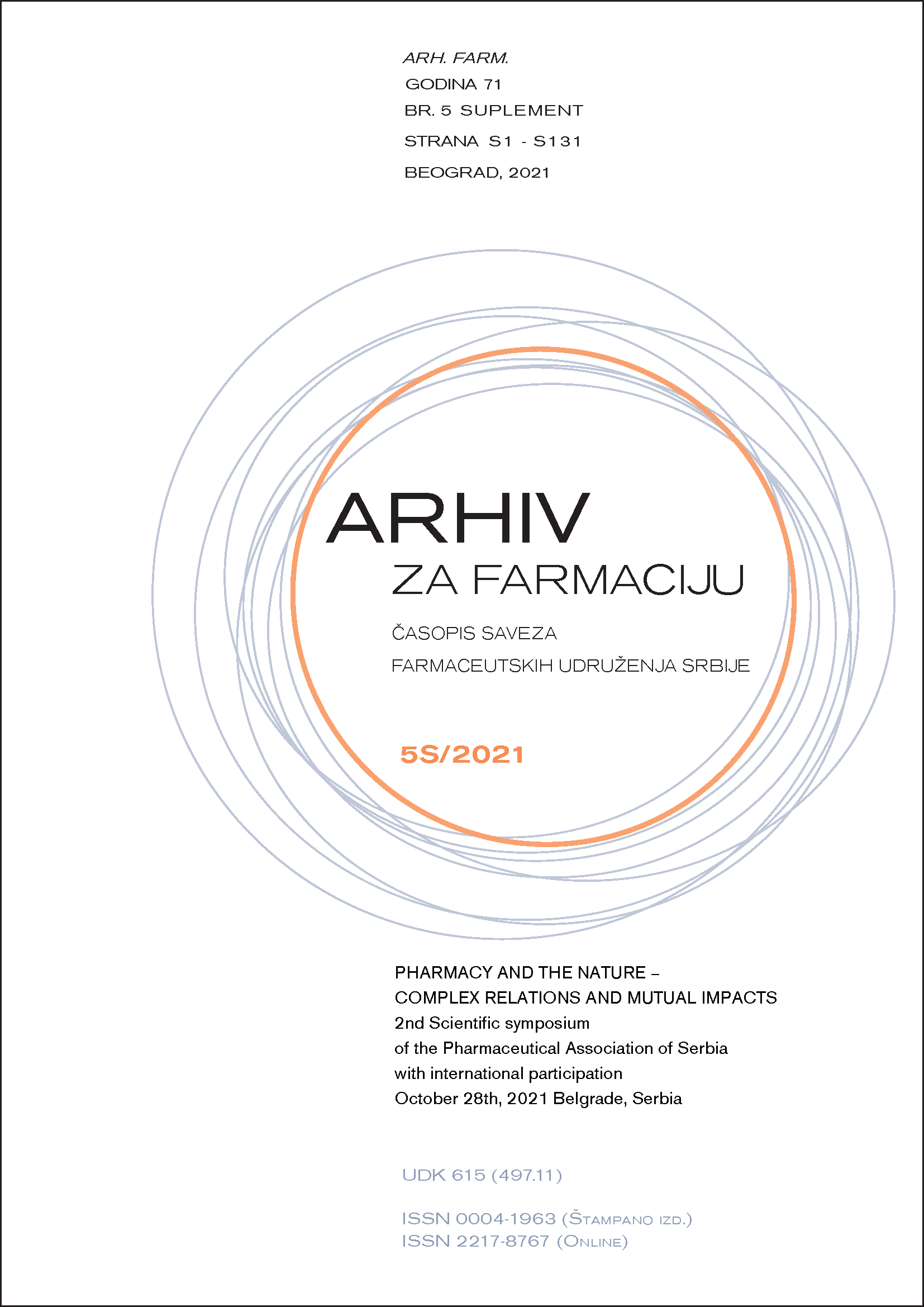COMPARATIVE BIBLIOMETRIC STUDY ON THE APPLICATION OF PRINCIPLES OF GREEN AND SUSTAINABLE PHARMACY IN PUBLICATIONS FROM SERBIA AGAINST SELECTED EUROPEAN COUNTRIES
Abstract
The problem of pharmaceutical pollution has motivated many researchers to contribute to identification and prevention of pollution, improvement of manufacturing and raw materials used in pharmaceutical industry. The area that unites such research is called the green pharmacy [1]. This study aims to compare the bibliometric parameters of research publications based on the principles of green pharmacy in Serbia against selected European countries.
A literature search was conducted in September 2021, in the Web of Science database (Clarivate Analytics), using keywords Topic=(pharmac*) AND ("water pollut*" or "soilpollut*" OR "waste management" OR "waste disposal" OR "green chemistry" OR "green pharmacy" OR "sustainable chemistry" OR "sustainable pharmacy" OR "environmental risk" OR "environmental impact"). The search was limited to period 2014 - 2018. Only literature indexed in the "Science Citation Index Expanded" was considered. Publications affiliated to institutions from Serbia were compared with those from Bulgaria and Denmark as reference countries selected due to comparable population, EU membership and, in case of Bulgaria, similar socio-economic environment.
A total of 15038 publications contained the requested keywords, of which 5537 were published in the period 2014-2018. In that period, 62 publications were published in Denmark, 27 in Serbia and 5 in Bulgaria. The average citation and h-index of the selected papers are as follows: 43.24 and 23 for Denmark, 43.93 and 15 for Serbia and 17.6 and 5 for Bulgaria. The type of publications is predominantly original scientific paper (100% in Bulgaria, 93.5% in Denmark and 85.15% in Serbia). Review articles (Denmark - 4, Serbia - 3), book chapters (Serbia - 1) and editorial (Serbia - 1) are less represented. Researchers from Serbia have published in collaboration with scientists from 22 countries, most often from Germany and Portugal. Researchers from Denmark cooperated with researchers from 30 countries, while those from Bulgaria with five. "Water quality", "pharmaceutical residues", "pharmaceuticals", "analgesics" are the most common keywords in publications affiliated to Serbian institutions. Similarly, common keywords in Danish publications are “pharmaceuticals”, “wastewater”, “critical body residue”, “seafood” and “immune suppression”. Due to the small sample, the analysis of Bulgarian publications could not be conducted.
Considering the number of research institutions, mobility opportunities and investment in science, significant difference in the number of publications between Serbia and EU countries was expected. This study showed that despite the smaller number of publications, qualitative indicators indicate that quality of studies conducted in Serbia is comparable to those from the selected EU countries.

